CFCH at the Heart of America
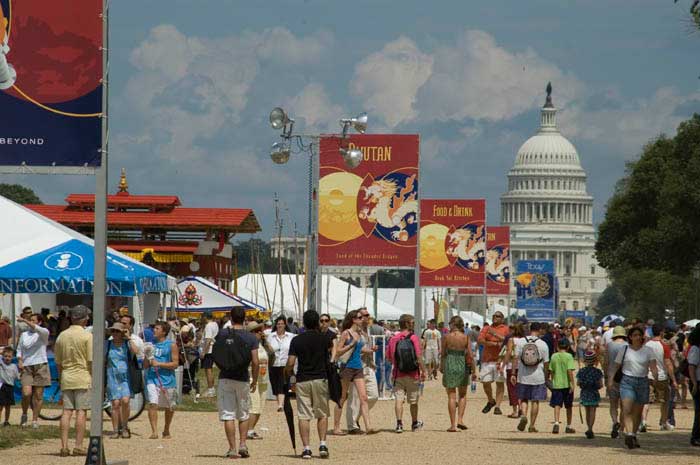
With new leadership in this moment of transition and possibility, the Center for Folklife and Cultural Heritage at the Smithsonian has sought feedback and perspective.
I offer some thoughts that I hope will extend the arena of what might be considered for a new strategic plan, not with the expectation that these ideas will be incorporated whole cloth, but that they may widen the field of aspiration for an agency uniquely placed to serve powerful purposes. I take as a point of departure the notion that CFCH could be an agency that models and exemplifies the American ideal of government, of, by, and for the people, and the position of the agency near the center of our civic ritual and symbolic life.
When people select the elements of their collective representations, they assert a proposition; this is who we think we could or should be as well as presenting things as they are. What vision of the cultural heritage and folklife of the world and of the United States of America does CFCH hold? If folklife is not an antiquarian curiosity; if cultural heritage is not an academic abstraction, what are these things? How do we return to the American people the gifts of their humanity and struggle in forms that accurately honor and inspiringly sustain our broad and ample capacity for community, shared creativity, and aesthetic and ethical experience? In a time when the very notion of government as an authentic instrument of the people’s will is cripplingly in doubt, can CFCH help to restore democracy in America by serving as a steward of public cultural conversation and mutual recognition?
If such an effort were to be undertaken, it might mean different topics for research and presentation, but even more, it demands the discovery of new more dialogic ways to imagine the organization and its relationship to other organizations and people.
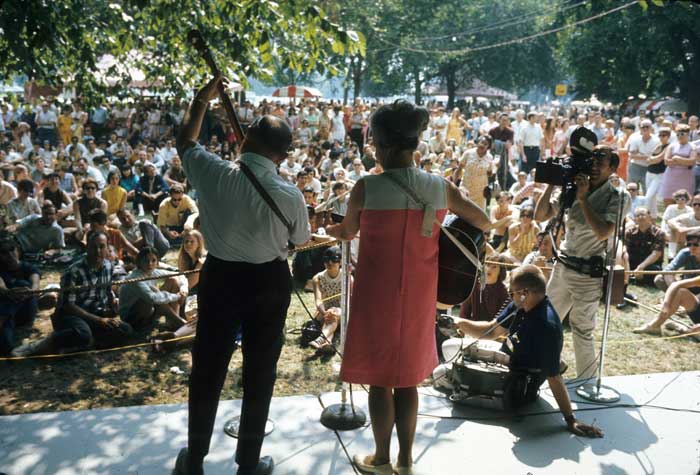
I would like to address three areas of CFCH’s work: as a catalyst for celebration and community, as a convener of public dialogue, and as an incubator and hub of professional cultural practice. These functions are interrelated but distinct enough for separate consideration.
Since its inception, the Smithsonian Center for Foklife and Cultural Heritage has been actively involved in public presentation of folklife, an activity with educational, aesthetic, economic, political, and ludic elements. Ostensibly, CFCH showcased communities, genres, and themes to edify and inform its audiences about the world’s vernacular traditions, its intangible cultural heritage. In this it was much like its sister Smithsonian museums, bracketing and interpreting the world to encourage learning, and to broaden and deepen the knowledge of visitors.
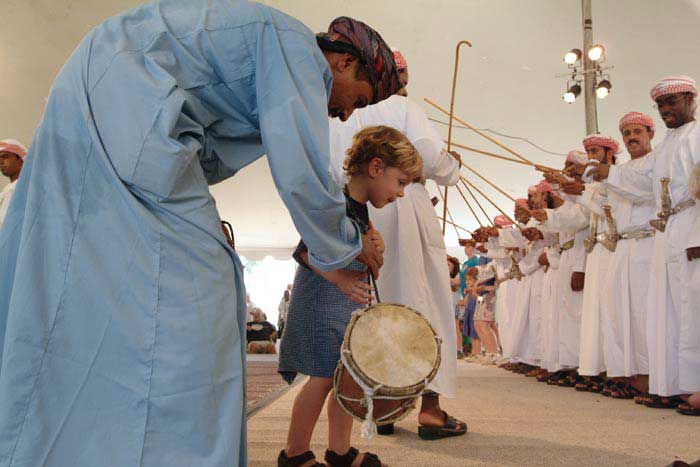
The reality of the Festival, however, is that while this style of cultural transmission and edification takes place, other exchanges and experiences also emerge on the Mall. There is a magic and intimacy to the Festival that issues from the power of the participatory genres and the immediacy of the Festival’s presentational strategies. These evanescent moments remind us that the matters of the Festival are human matters that we might not be able to stand apart from them if we are to more deeply understand and experience their implications for us.
The Smithsonian Folklife Festival has always been about celebration, but it is also a celebration in itself. I wonder if the Festival might accept this mantle even more fully? Could CFCH become even more a catalyst for a national public homecoming, a participatory festival of celebration and reflection in the July Fourth period of national ritual? Might the work of staff shift from selectors and curators to partners and animators, welcomers and hosts for the myriad of communities that make up this country? Could CFCH realize culturally an ideal of government and folklife where we are appreciatively, peaceably, and lovingly, our brother’s keepers?
I realize that this is quite improbable given the status quo, but it is also important to not lose sight of the power of ritual and public display; it is how we know who we are, and we are at a time where this has seldom been more in doubt. Such thoughts are a bit paralyzing in their grandiosity, but the key notions might be generative. The Festival should be a big deal. It should be nationally broadcast on PBS with superb stagecraft. It could be preceded and fed by local and regional “pre-Festivals.” The existing Festival could be streamlined to a single theme and the boundary of Festival and national public space made porous and welcoming. Smithsonian Channel should have a reality show looking at Festival performers.
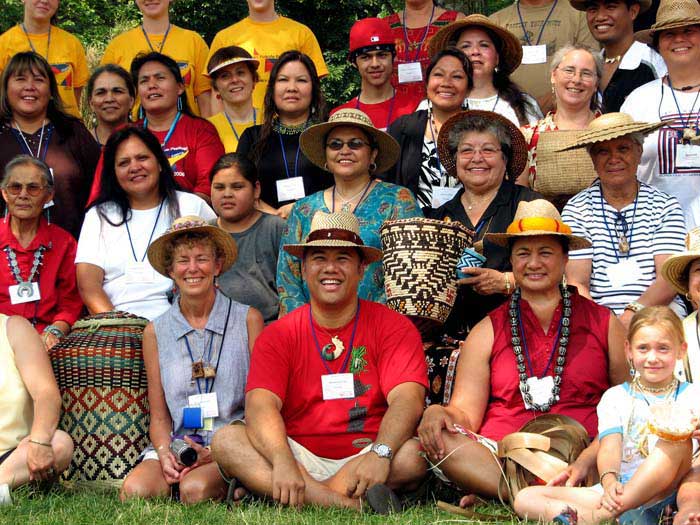
The community of CFCH is the whole world. The funders of CFCH are the American people. The audience of CFCH is its customers and those who have seen the Festival and other CFCH productions. This audience numbers in the millions, but I warrant to say that the Center is clueless about whom this group really is. I’m guessing the database does not include all these folks by any stretch. It ought to.
Even more, all the souls who have presented, volunteered, staffed, or researched for the Festival is a vibrant core community, as remarkable an aggregate of gifted people as might be. How do you serve them? How do you benefit from them? Seize the opportunity to connect to these concentric circles more fully to fuel your public celebrations of humanity, but perhaps more importantly, to engage in the dialogue we need to survive as a culturally fractious but hopeful people. Yes, you should have those “difficult conversations,” but they should be public and democratic, made possible under the prevailing sign of good will and appreciation.
I don’t think CFCH should waste its time on dry convenings arguing the niceties of authenticity and social justice. It could, though, partner with storytellers, folklorists, artists, community scholars, organizers, and activists of all stripes to invite real talk throughout the year with a broad public, culminating vigorously in the national ritual time of July Fourth. Could we share what we love and what makes us angry across our diversity?
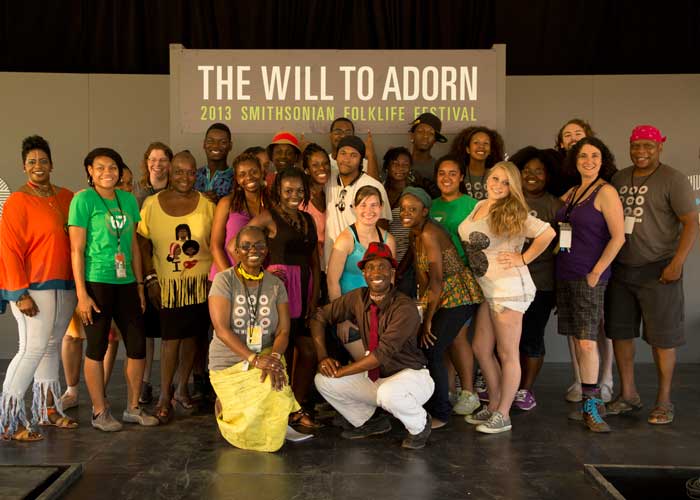
Finally, CFCH needs to pioneer and share an emerging vision of professional cultural practice. It has always been a training ground and inspiration for cultural workers, but it has also been so preoccupied with the frantic demands of its programming load that it has in some ways turned away from its role as national (and international) leader of the community of cultural sustainers and advocates. Perhaps as a result, this community is more of an abstraction than a reality in its full scope, fragmented and disconnected, often at cross purposes.
I would advocate strengthening the connection with this community through more, and more intentional and academic, internship and volunteer opportunities, and through an ongoing outreach to academics and administrators to be part of the public conversations and activities of the center.
Happily this connection could create a virtuous circle in widening the reach of CFCH and preparing the ground for future transformative events. A concrete opportunity here would be to organize a CultureCorps, spring-summer residencies for a team of students selected from different cultural programs.
Ultimately, the vision I have for CFCH is Jeffersonian in spirit. Each one of us can and should be a citizen and a full human being. We celebrate this. Each one of us deserves respect and appreciation for the cultivation of our humanity, and our singular stories of survival and dignity. And our government should be where and how we celebrate this liberty, a trusted partner in the continuing American experiment.
Rory Turner is a folklorist and cultural activist who launched and co-directed Maryland Traditions and began the Master of Arts in Cultural Sustainability Program at Goucher College where he currently teaches in the Department of Sociology/Anthropology.

